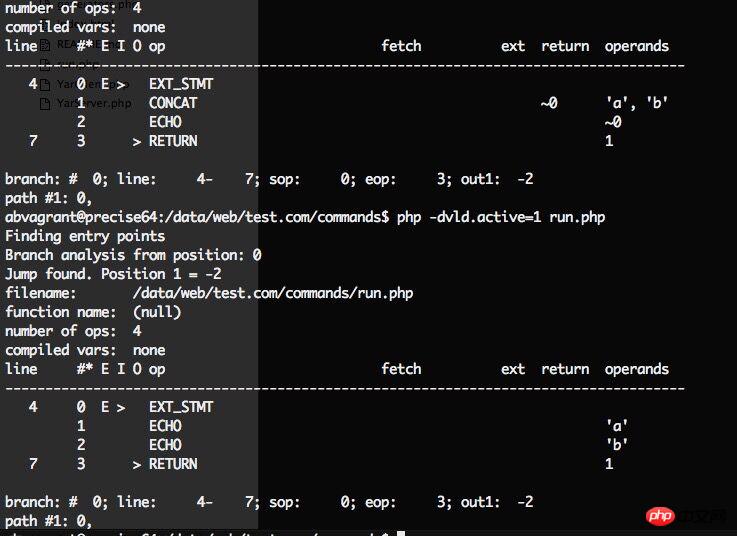
This article uses several specific examples to understand the difference between echo using commas and dots in PHP programming. Friends in need can refer to it. I hope it will be helpful to everyone.
It is mentioned that using echo string is better than using .connection. Let’s not talk about the reasons first. Let’s take a look at the following two sentences
<?php // 逗号比.更节省时间? echo '1+5=' . 1+5; echo '1+5=' . 5+1;
. What is the result?
1+5=6? 1+5=6? —————— 6? 2? —————— 6.6? 6.6? ——————
I can only say that the result of echo '5+1=' . 1+5; is 10, so the result is 6 and 2.
Why is this? Is addition in PHP There is no commutative property? Of course not..
Let’s not think about why. If I try to replace the above dots with commas.
echo '1+5=' , 5+1; //输出 1+5=6 echo '1+5=' , 1+5; //输出 1+5=6
It can be seen that only by using commas can we We got the expected result.
Then why doesn’t the period work? Why does the comma work?
echo ('1+5' . 5)+1; //输出2
After we add parentheses to the previous one, we get the same result. .
It proves that PHP concatenates the strings first and then performs the addition calculation. It proceeds from left to right.
That’s good. Since the strings are concatenated first. Then it should be "1+55". Then add 1 to this string. Then why is 2 output?
This is the same as the mechanism of converting strings into numbers in PHP Related. Let's look at the following example
echo (int)'abc1'; //输出0 echo (int)'1abc'; //输出1 echo (int)'2abc'; //输出2 echo (int)'22abc'; //输出22
From the above example we can see that if a string is forced to be converted into a number, PHP will search for the beginning of the string. If the beginning is a number Just convert.
If not, just return 0.
Return to the 1+55 just now. Since this string is 1+55, so after forced type conversion, it should be 1. Add 1 to this. Of course it is 2.
In order to prove our conjecture, let’s verify it.
echo '5+1=' . 1+5; //输出10 echo '5+1=' . 5+1; //输出6 echo '1+5=' . 1+5; //输出6 echo '1+5=' . 5+1; //输出2
The result proves that our assumption is correct.
Then Why does the above problem disappear when using commas?
The manual says. Using commas means multiple parameters.
That is to say, it means multiple parameters. In other words .
The commas separated are equivalent to N parameters. In other words, use echo as a function.
In this case, echo will process each parameter. Calculate first, then connect and output. So if we use commas, the above problem will not exist:)
php echo manual
<?php // Strings can either be passed inpidually as multiple arguments or // concatenated together and passed as a single argument echo 'This ', 'string ', 'was ', 'made ', 'with multiple parameters.', chr(10); echo 'This ' . 'string ' . 'was ' . 'made ' . 'with concatenation.' . "\n";
As for why it is fast, it can be easily understood, using . is spliced into echo first, although the number of commas represents the number of echo calls (it can be understood this way for now).
But the splicing speed is slower than the echo speed.
If you understand it deeply, VLD is as shown below. It’s a picture of @tywei大神

The top has more CONCAT than the bottom, and the bottom has more echo than the top.
Related recommendations:
The road to learning MVC framework in PHP by
detailed explanation of php namespace usage
The above is the detailed content of Detailed explanation of the difference between using commas and periods for echo in PHP. For more information, please follow other related articles on the PHP Chinese website!




